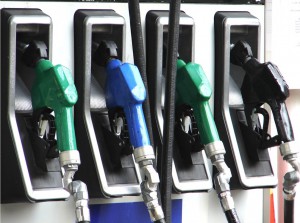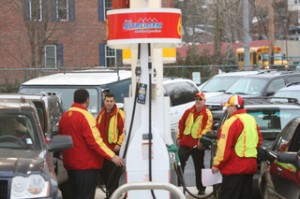A California proposition to require voter approval of fuel and vehicle taxes will be on the November ballot now that the secretary of state has certified the requisite number of petition signatures.
As drafted, Proposition 6 would apply retroactively to recently enacted taxes and put all future gas tax increases to voters California, which has the worst traffic congestion in the U.S. Approval of the proposition could reduce state revenue by as much as $5 billion annually, according a report by the California Legislative Analyst’s Office.
Gasoline prices in California are routinely the most expensive in the lower 48 states and currently top $3.66 per gallon, according to AAA.
Meanwhile, the price of gasoline crept upwards by an average of a penny across the United States, AAA reported this week.
(Gas prices highest in four years, expected to rise through summer. Click Here for the story.)
AAA said the national gas price average is $2.87. Pump prices in nearly 30 states are seeing a jump of as much as eight cents, a dozen states saw prices drop and another dozen states’ gas price averages remain stable from last Monday.
“Demand for gasoline this summer remains very strong week-over-week, driving gas prices higher alongside rising crude prices,” said Jeanette Casselano, AAA spokesperson. “Today motorists are seeing gas for $2.76 or more at 56% of gas stations across the country.”
Across the United States, the average price for a gallon of gasoline is six-cents cheaper than last month, but 61 cents more expensive than at the same time last year.
Crude prices trended lower last week following a report by the Energy Information Agency that showed U.S. crude oil inventories increased by a total of 1.3 million barrels last week, indicating the price of gasoline would remain stable for the next few weeks.
(Click Here for more about Harvard alchemists can turn air into gasoline.)
AAA analysts noted it was the first time in three weeks that the U.S. saw inventories build. Normally, the industry sees drawdowns throughout the summer.
At 417.9 million barrels, crude inventories in the U.S. are 85 million barrels lower than they were at this time last year. The surprise build in total crude stocks gave market observers pause amid a slew of other factors influencing the oil market, including increasing geopolitical factors – in Iran, Libya, and Venezuela – potentially destabilizing global supply.
Moving into this week, market observers will watch these factors to determine their impact on supply. If it appears that supply could be reduced amid high global crude demand, oil prices may increase.
(To see more about the end of EV tax credits for some automakers, Click Here.)
In related news, the U.S. oil rig count increased by five last week, according to Baker Hughes Inc., bringing the total number of rigs to 863. When compared to last year’s count at this time, there are 100 more rigs currently operating in the U.S.




Could this be any kind of a preamble to taxing BEV and plug-in hybrids?